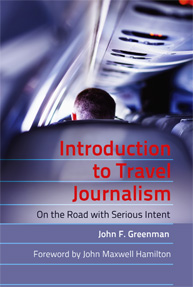Poverty tourism
Posted: November 19, 2012 Contents: Chapter 3 | Tags: ethics, journalist ethics, moni basu, poverty travel, travel ethics, travel journalism, travel journalist, travel writer, travel writing Leave a comment »Chapter 3 explains a dilemma travel journalists face when exploring stories about poverty. Can the journalists contribute to the impoverished or are they gazing at subjects as in a zoo? CNN.com writer Moni Basu explains a recent trip to India and her thoughts on poverty travel.
Others in the group also tell me that this is an India they might not have otherwise seen. And maybe they were wiser for it, sensitized to problems that can be unimaginable back home.
How can that be bad? There’s no better way to learn about a place, after all, than to experience it.
Still, as the foreigners turn in their donations for Salaam Baalak Trust, I can’t help but think about the day for what it was: a tour of poverty. And hasty, I think. In all of less than two hours, our look at others’ lives is over. The only people I have spoken to are connected to Salaam Baalak Trust…
More about ethics
Posted: October 28, 2012 Contents: Chapter 7 | Tags: accepting subsidies for travel, ethics, jina moore, jinamoore.com, journalist ethics, travel ethics, travel journalism, travel writing Leave a comment »Chapter 7 encourages the travel writer to remain ethical when accepting subsidies for travel. Jina Moore of jinamoore.com discusses another ethical standard the travel writer must uphold when creating stories. Moore an author and multimedia producer gives 5 rules in obtaining consent from the subject of the story. Here are a few of the rules to remember:
- Meaningful consent comes from the survivor.
- Meaningful consent is given for specific use.
- Meaningful content is given at an appropriate time.
Your subject has put a level of trust in you as a travel writer, don’t abuse that trust.
